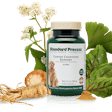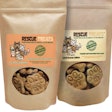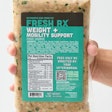
Pet parrots tend to lead sedentary lifestyles, compared to their kin soaring through the Amazon rainforest canopy. At the same time, captive birds often eat a diet higher in fat that their wild relatives. As a result, pet parrots suffer from high rates of obesity and metabolic disorders, wrote a team of scientists from São Paulo State University in Brazil in the study “Feed processing effects on digestibility, palatability, excreta fermentation products and blood parameters in blue‐fronted amazon parrots (Amazona aestiva)” published in the Journal of Animal Physiology and Animal Nutrition.
That research team studied blue‐fronted Amazon parrots’ ability to digest processed feed with three different levels of starch gelatinization. The feed replaced the parrots’ high fat sunflower seed diet.
“Consuming the processed diets improved the birds’ metabolism and health,” wrote researchers in abstract of the paper
“Diet would be the primary means of weight reduction in birds,” Ernie Ward, DVM, founder of the Association for Pet Obesity and Prevention, told Petfood Industry. Ward was not involved in the experiment involving blue-fronted Amazon parrots.
Research on replacing sunflower seed diet with extruded pellets
In the experiment, researchers fed thirty adult parrots with sunflower seeds for 90 days. The birds were then distributed into randomized groups. Each group received one of three prepared diets for 160 days. Each diet used the same feed formulation, but was extruded under three degrees of cooking to yield different levels of starch gelatinization (SG): uncooked and pelletized at 27.1 percent; low‐cooked extruded feed at 81.6 percent SG; and high‐cooked extruded feed at 98.5 percent SG.
After the parrots transitioned from sunflower seeds to a processed feed, the birds experienced reduced serum glucose, triglycerides, cholesterol and aspartate aminotransferase, an enzyme that can indicate liver damage. Those same parrots also had increased red blood cell, hemoglobin, lymphocyte, monocyte and leucocyte counts. The degree of processing interfered with fat and starch digestibility, which decreased in the more gelatinized diets.
“In conclusion, parrots preferred the extruded diet and did not require an extensive SG to properly digest the feed,” wrote the researchers.

















